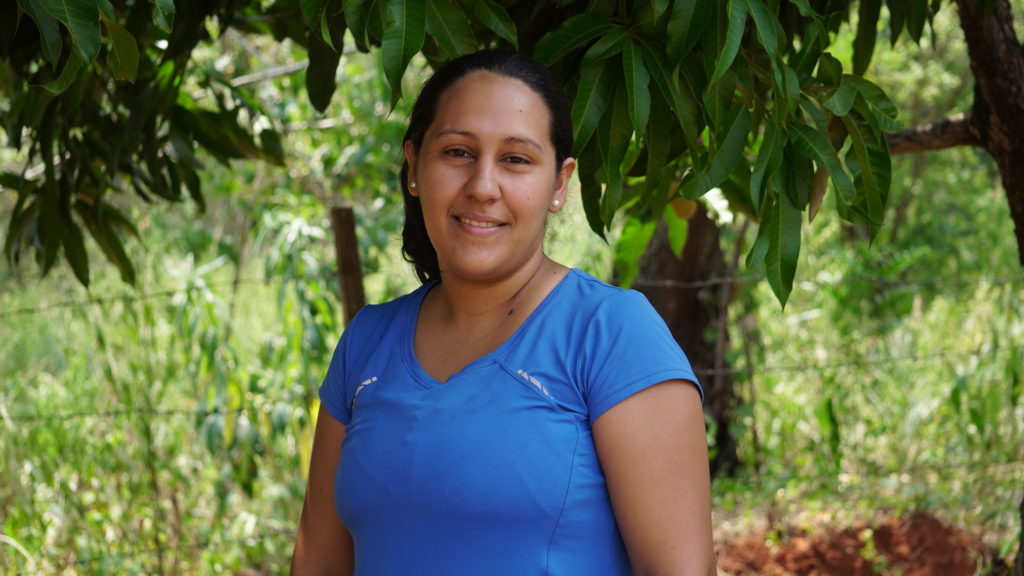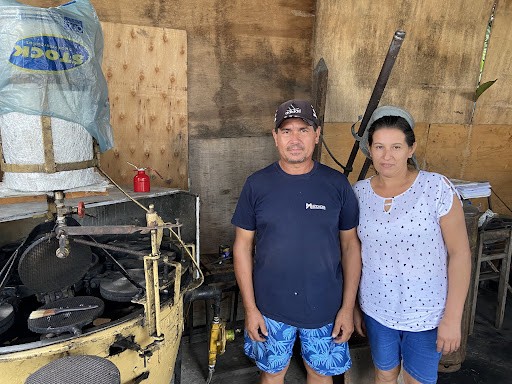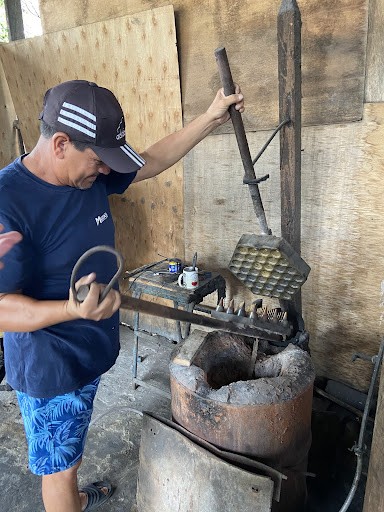Two women’s stories of hope in Paraguay –

Through Diaconia, Global Aid Network (GAiN)’s partner in Paraguay, women are being equipped to overcome poverty and make a way for themselves in the world. With the help of microloans, small businesses are strengthened and given the chance to grow, while the formation of trust groups cultivates a sense of support and community amongst other women entrepreneurs.
During our team’s most recent visit to the field, we witnessed how Diaconia experienced challenges during the pandemic, yet found new methods of maintaining solid connection with clients. One way was through increasing the use of mobile technology, which yielded positive results. Gloria, who leads the chaplaincy program, said she was able to have more genuine conversations through WhatsApp because it provided a more personal and private channel to talk through struggles with women in trust groups. Since Paraguayan culture is shy and low profile, WhatsApp served as a natural and comfortable way for these women to share openly and have honest conversations about faith and life. Now that they are back to in-person meetings, chaplains reported that there is a new level of closeness with clients that they haven’t felt before.
During the pandemic, the ministry used video instructions to teach women and encouraged them to send pictures of their end product to qualify for a gift. Although many people tuned in for virtual training, the ministry recognizes that in-person training had higher engagement and are planning on returning to this system as soon as possible. Diaconia also plans to launch a new program that delivers vocational training to prisons, in partnership with Trans World Radio. Women who are incarcerated would learn basic crafting skills and, through another local charity, would sell their work and be able to receive a small income through their products. Through this initiative, the ministry hopes to further extend the opportunity for economic empowerment to those living on the margins of society.
While in Paraguay, our team encountered a young woman named Gilda who had experienced the fruitful benefits of partnering with Diaconia. When Gilda was only 18 years old, she worked with her mom and another woman selling food. Once she heard about the microloans that were available through Diaconía, she knew this could help bridge the gap between her and her mom’s current work life and their dream of having an independent business.
Both Gilda and her mother joined one of the very first Diaconía trust groups, which provided a foundation of support and encouragement for their business journey. Ten years later, their business has expanded and they now sell clothing as well. With her last loan, Gilda purchased a vehicle that allows her to travel and buy clothing in bulk to resell in her neighborhood. Her trust group has also grown, and now her mother, husband, and three of her cousins are all receiving loans from Diaconía for their small businesses.
“With each loan, I invest in my business. And when our loan cycle is over, I use the savings I get back to invest in my house, making it a dignified home for my family,” she said.
Gilda dreams of building a small clothing shop and being able to send her children to college so that they can become professionals and not have to struggle every day to provide for their future families. She is thankful for the help she has received through Diaconía and the economic empowerment that all of the women in her family and community can now experience thanks to the ministry’s ongoing support.
“The culture naturally tells women that they cannot do certain things, they are supposed to have more hardships, they are not supposed to have dreams and they have no hope, and they are useless, but this is not true at all. These programs help women gain confidence, and see their value in Christ … they can celebrate who they are.” -Citialli, local Paraguayan woman
We also met a woman named Ilda and her husband Carlos, who came from a humble community in central Paraguay. In search of a better future for themselves and their family, Ilda and Carlos, along with their two kids, packed up their belongings and settled to the outskirts of the capital city, Asuncion.

With little money and securities, Ilda and Carlos had to be wise with their resources. They used their old truck to drive themselves into the city, and started a business selling general goods which ranged from clothing and plastic buckets to consumables, like soap and snacks. Soon, the hard reality of starting a new business set in, as competition was fierce and they weren’t able to get any traction.
Knowing their livelihoods were at stake, Ilda and Carlos brainstormed what else they could do to support their family. They landed on the idea of selling charcoal because it is commonly used by people to cook and heat up their homes. Though the couple started to buy charcoal from the countryside and resell it in the city for a profit, challenges continued to appear. Their truck began to have frequent breakdowns, forcing them to pay for repairs and lose money with the business.
In the meantime, Ilda heard from one of her friends about Diaconia, where she could access micro-loans. At first, she was a bit skeptical about the organization, but the reality that she would be accessing the loans with other people gave her more confidence. She decided to apply and join a trust group, which allowed her to keep her charcoal business alive and give her family stable income.
After a few loan cycles, Ilda had not only repaid her loans, but her business had expanded to the point where she was able to purchase an additional truck to transfer more products from the countryside to the city. As the business gained momentum, Carlos was able to make agreements to sell their products to 10 gas stations and some smaller independent stores, further stabilizing the revenue of their business.

Raising kids while making sure there was enough money for food and school was a difficult task for Ilda and Carlos. Yet they persevered in order to provide a better life for their children. “What other options do we have? I only have grade 5 education,” Ilda said. “And I want to make sure my children have enough opportunities for the future.”
Their oldest daughter, who turns 15 this year, dreams of becoming either a journalist or a lawyer, while their oldest son, who is 16, has already started training to become an electrical mechanic for cars. “And now, the entire family helps out! Our kids would also help and I would give them some allowance for their work,” Ilda said.
As the business grew, Ilda and Carlos hired two more people to sort and repackage the charcoal, and added more space and equipment to make working more efficient. Ilda also noted that the demand for charcoal dips in the summer months, so they put some of their money toward starting an ice cream cone business! This decision allows them to have consistent income throughout the year.
Ilda loves being a part of the savings group called “Progresso de Jesus-2” (Progressing with Jesus-2). “It’s not just about the money, but people in the group respect each other and look out for one another.” When asked about her faith she said “being Catholic myself, the devotionals by the chaplains really helps me to understand Jesus and how I should love one another.”
By partnering with Diaconia, women like Ilda and Gilda are given the opportunity to watch the seeds of their business grow into something stable and strong. Currently, there are 5,893 Diaconia clients, and we are excited to continue sharing their stories of hope.

Leave a Reply